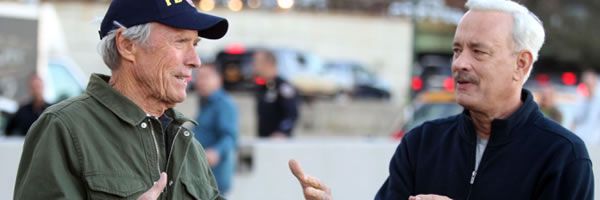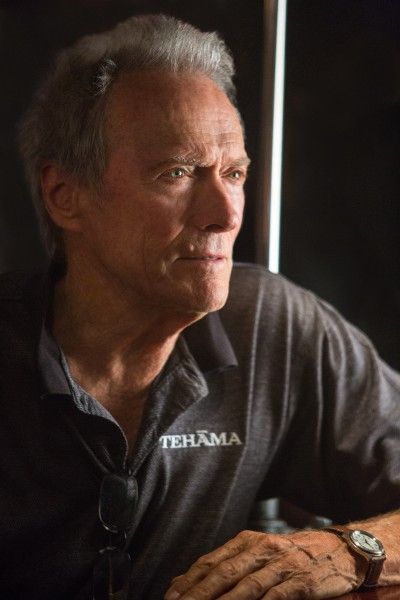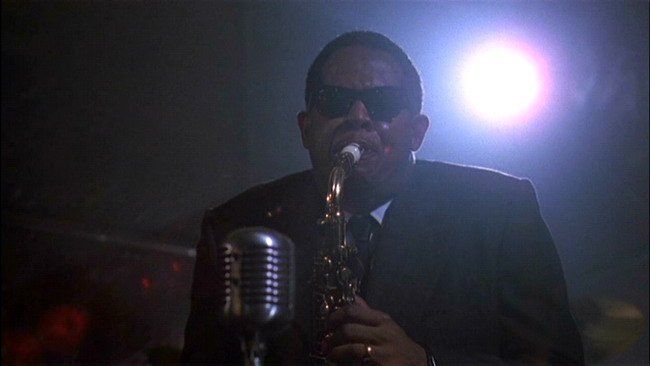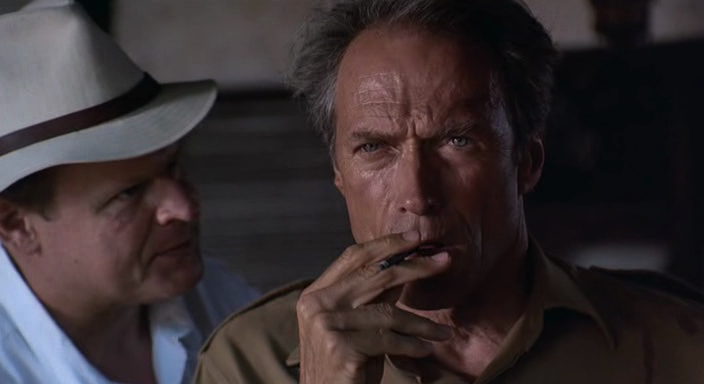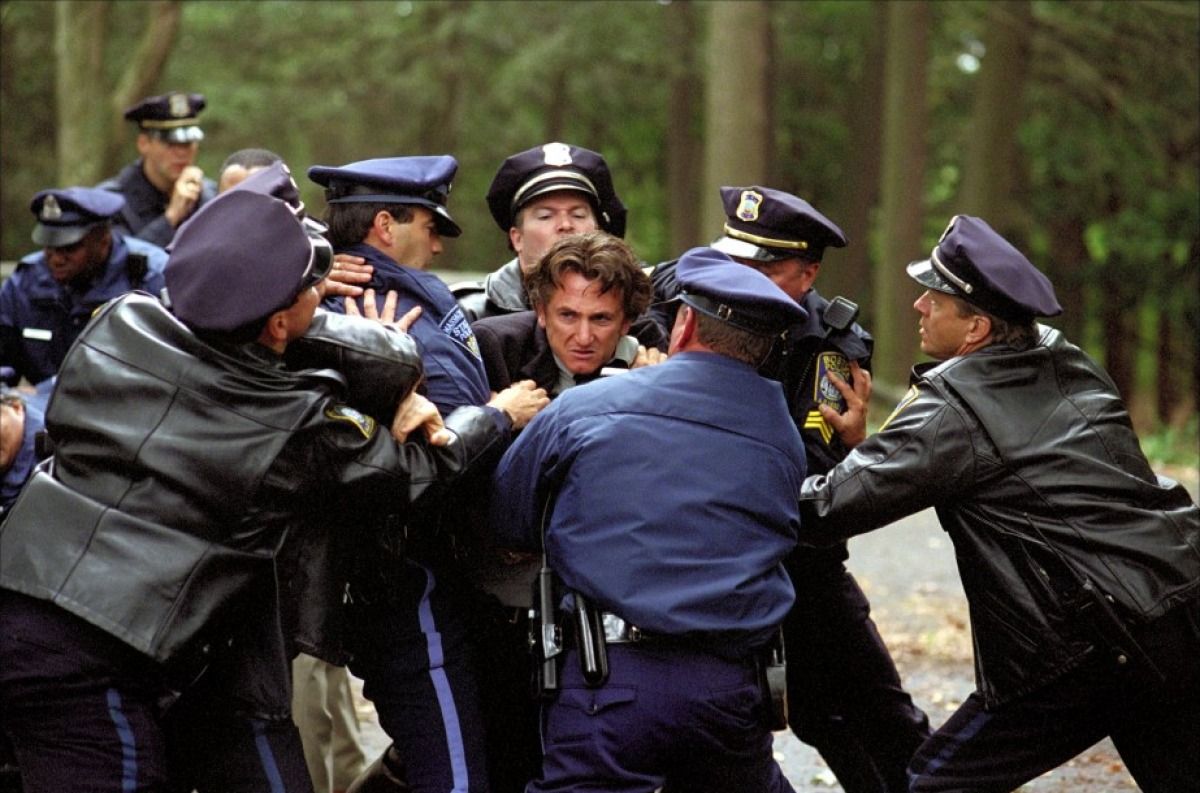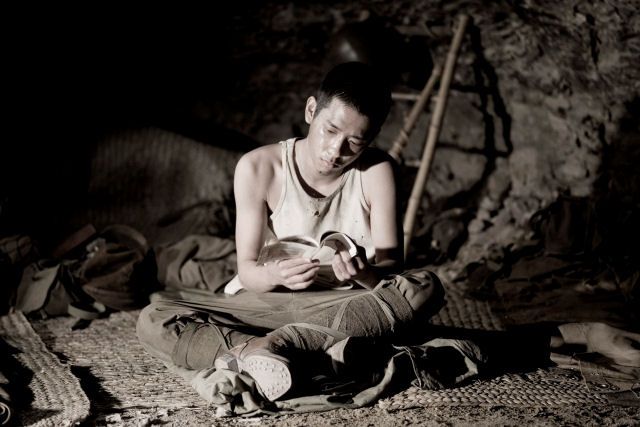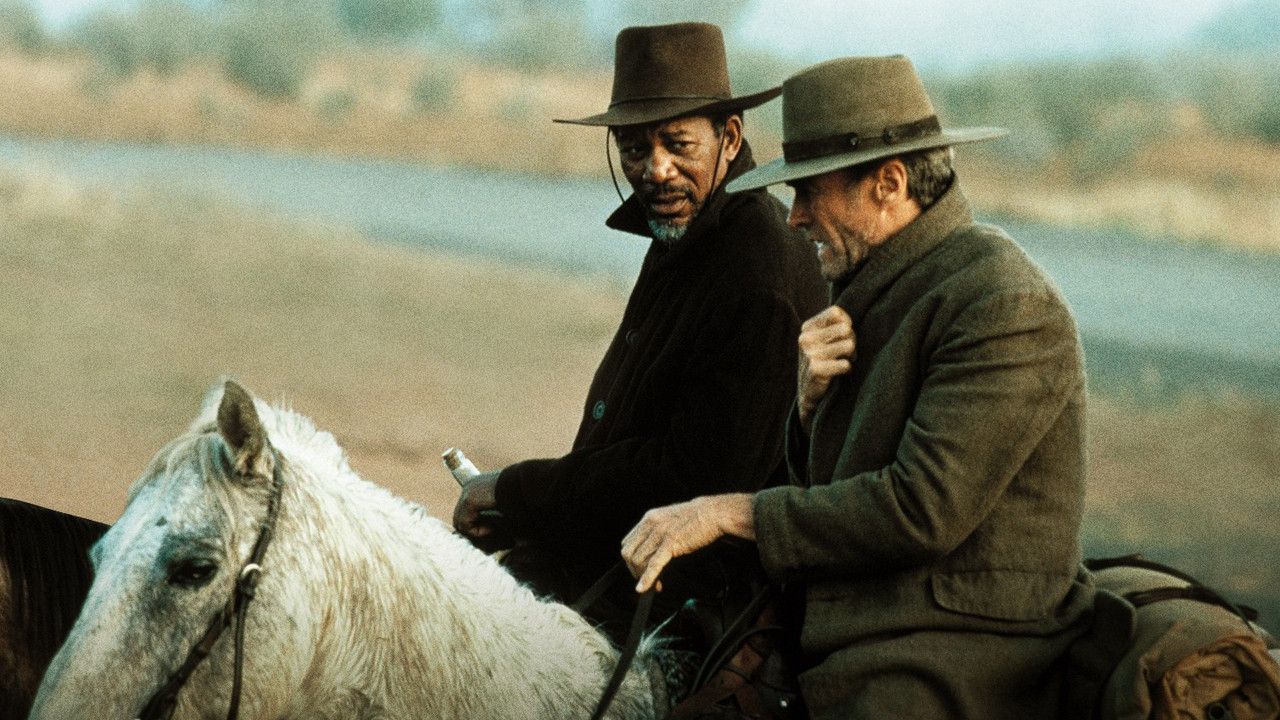It’s easy to like or even love a movie like Spotlight. The protagonists are on the side of a cause that no sane person would be against and their hard work pays tremendous dividends by the end of it all. Their work is portrayed as exciting and righteous; their personal lives are not perfect but sustainable and even enjoyable for the most part. When we are faced with the ghastly, perverse crimes of the Boston Archdiocese, there’s a convincing depiction of the psychological traumas that come from molestation and betrayal at that level but there’s no ugliness beyond their accounts. For all its insinuations and descriptions of horror, there’s no tension to the film, no moment of genuine confrontation with how little the Boston Globe piece swayed public opinion about the church.
The sadness, the sourness of being what the public may very well consider a hero is never brought up in movies like Spotlight or The Imitation Game, which gets by with playing up the victimization of a proven, canonized genius. In contrast, it makes up the crucial pulp of Clint Eastwood’s dramas, whether they be war films, neo-Westerns, biopics, or crime sagas. The hurt of doing the right thing is Eastwood’s bread and butter, and it’s almost certainly what has caused contingencies of critics and audiences to latch onto petty inaccuracies rather than actually discuss what his movies are saying. For a formidable group of viewers, American Sniper is notable for a fake baby, a general disinterest with Chris Kyle’s history of bigotry, and little more. Never mind the fact that American Sniper is inarguably one of the most perceptive films about being a good soldier that’s ever been made, marked by a near-unbearable loneliness, familial strife, and a staggering talent for an act that is, in itself, a crime against humanity.
Eastwood’s treatment of Kyle gave the left a rash, most memorably encapsulated by Seth Rogen comparing the film to Nazi propaganda films and Michael Moore calling out snipers as cowards. Moore’s comments are about as blithely, broadly ignorant as they come, but Rogen’s tweet is exemplary of what people so often get wrong about Eastwood’s perspective. American Sniper is not celebratory or triumphant in its depiction of Kyle – he barely sees his family, his closest brothers-in-arms are all killed unceremoniously, and the work involves decisions that would simply pull most people apart mentally. Nor, for that matter, does the film fawn over the idea of America, the military, or conservative politics – Eastwood shows little interest in Kyle’s family values, the military is seen as a long-distance facilitator, and American occupancy in Afghanistan is viewed as a long line of impossible decisions, each one of which has a sizable body count attached to it.
What’s left is the man and his experiences, and that’s where Eastwood always starts. His best films catch political figures, soldiers, musicians, athletes, spiritualists, and a variety of other characters at once in immense creative streaks and troubling, intimate personal situations, caught between expressing one’s self and the drugs, violence, and moral compromises required to maintain a sterling public persona. As Eastwood has apparently cared less and less about his public perception – he talked publicly to an empty chair and supports Donald Trump - his films have increasingly taken on challenging political ideas and matters of complex identity, but that’s not to say that he hasn’t been making some of the best big-studio dramas of the last three or four decades. Here are five you should see as soon as possible.
'Bird'
Anyone who knows anything about Clint Eastwood knows he’s a devoted fan of jazz. His scores lean heavy on piano jazz, and he’s directed an episode of PBS’ series on the music genre. His most genuine love letter to jazz, however, is this exquisite, devastating look at the life of famed saxophonist Charlie “Bird” Parker, played with shattering energy and gravitas by Forest Whitaker. When I first saw the film, I compared it to Dreyer’s masterwork Gertrud in its use of stillness in its visuals and performance, but Eastwood also captures the thrill of performance with an experiential eye that transcends the stillness. As he always has, the filmmaker both sees the genius of Parker on stage, where Whitaker does some excellent mimicry both with his hands and face, and the drug addict that couldn’t break out of his own head, whose shy disposition clashed with a jolting popularity and unparalleled artistic vision.
'White Hunter, Black Heart'
Arguably the most openly reflective movie of Eastwood’s career outside of Unforgiven, White Hunter, Black Heart sees Eastwood as a film director in the mode of Howard Hawks, John Ford, and his heroes, Sergio Leone and Don Siegel. Preparing to shoot a film that sounds an awful lot like Hatari!, Eastwood’s John Wilson becomes obsessed instead with killing an elephant in the wild, a desire that ends up alienating his cast and crew from him while revealing the very essence of artistic precision and cinematic detail. The passion that Wilson shows for the hunt is comparable to Eastwood’s own love for his work and he goes one step further to suggest that the same side of his personality that brings out his most vibrant, insightful ideas also brings out his ugliest manners, grievances, and beliefs. On the way, Eastwood gives a breathlessly nuanced depiction of location shooting and of the relationship between workers on set, but this is primarily an act of self-excoriation. No other film in his dense, fruitful repertoire has given the audience such a moving and exhilarating glimpse at the inner life of Eastwood the artist.
'Mystic River'
Following Unforgiven, Eastwood didn’t have a big critical hit for some time, until he adapted Dennis Lehane’s crime epic Mystic River. The thematic focus is, once again, on violence and its tragic emptiness, as the hunt for the eldest daughter of a local criminal, played with pummeling ferocity by Sean Penn, leads toward an old friend and a deeply traumatic event in their childhood. Not only does Eastwood have an immediately convincing feel for the Massachusetts setting, he also has an unfettered sense of how history sticks with you in small neighborhoods where people don’t leave and, in a sense, hardly grow up. Kevin Bacon and Tim Robbins both give performances that vibrate with their attention to physicality and delivery, and along with Penn, they are prompted up by a bedrock of superb supporting players, led by Laura Linney. Like Westerns, crime films live and die by their sense of community, by the way they show the circuitous connection between different people in a shared space. In this regard, Mystic River could be the best crime film that the aughts produced, one that considers the shared shame, regret, anger, and frustration of senseless crimes with rare grace and a piercing lack of sentimentality.
'Letters from Iwo Jima'
For his first (and only) foreign-language feature, Eastwood decided to tell the other side of the story from Flags of Our Fathers, his excellent dissection of the men who raised the flag at Iwo Jima. Here, he tells the story of the commanders and soldiers on the Japanese side of the World War II battle, specifically focusing on matters of honor and heritage. Ken Watanabe gives one of his finest performances to date as Kuribayashi, the wise general who plans and leads the battle, and Eastwood similarly brings out tremendous dramatic muster out of Ryô Kase, Hiroshi Watanabe, and Kazunari Ninomiya. Where Flags of Our Fathers worked at deconstructing a symbol of heroism and the glory of war, Letters from Iwo Jima is an intimate, haunting subversion of America’s want to dehumanize the “enemy.” In scenes scattered amongst caves, beaches, and bunkers, the director erects one of the most poetic and unrelenting criticisms of war to ever hit the big screen.
'Unforgiven'
This is the one that even people who don’t like Clint Eastwood tend to love, and there’s good reason for that. A few dozen watches after seeing this monumental work in theaters, Unforgiven is still the gold standard in Neo-westerns, one that considers the moral aftermath of the genre that helped build Hollywood up and gave rise to the B-movie. Eastwood plays Bill Munny, a former outlaw who has regained his humanity but throws it back into contention when he agrees to hunt down a group of men who raped and cut up a prostitute. His use of space in this picture echoes the influence of Sergio Leone most potently, but the consideration of a life built on the fantasy of murder is all Eastwood.
Late in the film, Munny tells his younger compatriot that there’s no romance in killing. One can feel Eastwood culling forth a myriad of memories of being the Western hero “courageously” shooting down his foes in this moment, but this perspective on murder permeates throughout. Violence is a solution in innumerable instances but it’s short-term, hollow, and horrible, and Eastwood has seemingly known that for decades now. Whether here or in American Sniper, it’s easy to feel the regret and ache in Eastwood while reflecting on a life lived as a (fictional) gunslinger.

